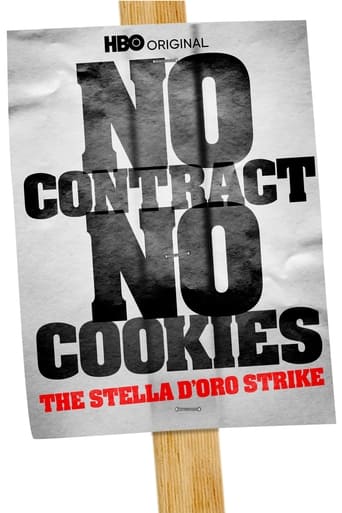maconte
One of the characters in this film says that private equity companies like Brynwood are turning "the American dream into the American nightmare." This film provides viewers with a visceral sense of this process. It is better than any economics class in explaining the role of unions in the American economy .. and better than any lecturer in explaining why the middle class is disappearing. You see the lower middle class lifestyle that decent wages provide, the apartments in which the workers at Stella Doro live, the relatives whose education they paid for ... and you are left to imagine what happened to these people when all was said and done. If this story doesn't make you think twice about Republican America, you don't have a brain (and forget about a heart).
evening1
A diverting though blatantly one-sided look at the damage that can result when private equity swoops in and tries to slash wages and benefits.More than 130 immigrants from 20 countries struck the Bronx-based Stella D'Oro plant in 2009. They won their case -- only to see the factory, which dated from the Thirties, shut down and sold.The filmmaker explores the personal side of the strongly bonded strike force, showing how workers toiled, sometimes for decades, as they chased the American Dream.Many of those interviewed seem to live in fairly cushy homes and one wonders what they actually made while on the bakery payroll. (We're never told.) One also questions how they could afford to walk a picket line for a whole nine months, but how workers survived this is never addressed. While the equity firm, Connecticut-based Brynwood, is made to look like the ultimate bad guy in this film, one wonders whether any attempt was made to speak with its principals. Again, the viewer is left clueless.This movie kept me interested but left me feeling manipulated.
